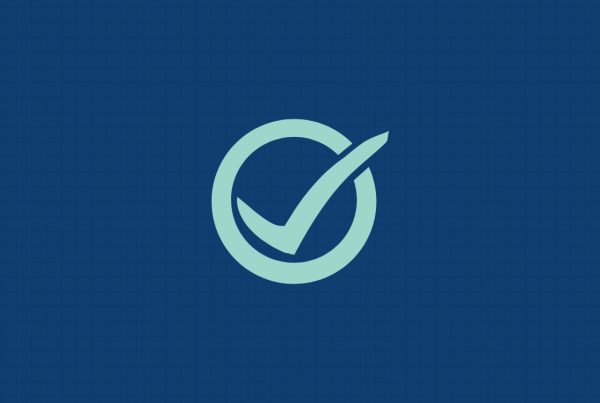Despite the pandemic, Reuters reports that the U.S. Securities and Exchange Commission (SEC) has had a banner year, with more than 700 cases and enforcement actions. As of November, that number represented over USD $4.7 billion in penalties, fines, and disgorgements assessed. The ratio of fines to penalties is a bit askew, considering that one fine alone represented a USD $1.2 billion settlement.
Still, the agency has been particularly busy with disclosure and regulatory-related penalties, in contrast to a mere seven enforcement actions by the Financial Crimes Enforcement Network (FinCEN). Of course there is an issue of the remit of the respective agencies that would need to be taken into consideration, but one priority of the SEC has seemed to remain squarely in the initial coin offering (ICO) / cryptocurrency-related space. Here’s a look back at SEC cryptocurrency regulation from this year and what’s to come from SEC leadership in 2021.
—
ICOs Strictly Subjected to Howey Test
The SEC announces its enforcement priorities annually, and 2020 was no different, if only in that respect. At the start of the year, the Office of Compliance Inspections and Examination (OCIE) released its 2020 Examination Priorities, and in it the agency noted that “digital assets” would be a priority. Many of the enforcement actions that occurred throughout the year were related to either ICOs, either as fraudulent schemes or due to poor regulatory disclosures.
The SEC has treated ICOs fairly strictly over the past few years, perhaps punctuated by the Report of Investigation Pursuant to Section 21(a) of the Securities Exchange Act of 1934: The DAO (the “DAO”), released in mid-2017. This report galvanized the agency’s approach to tokenization and ICOs, noting that strict adherence to the Howey test (i.e., an investment of money and expectation of profit as the result of a common enterprise, with the profits coming from the efforts of a third party) would apply to ICOs.
To that end, ICOs who tested the SEC’s resolve found that the failure to register or seek an exemption to the Howey criteria would result in multi-million dollar penalties. In one enforcement action in particular, the SEC noted that the ICO in question—though it knew or had reason to know that it was a security based on the DAO report and prongs of the Howey Test—continued to sell its offering without making appropriate disclosures to its investors.
READ MORE: The Most Telling Guidance of 2020: Corporate Compliance Programs, AML & More
Changing of the SEC Guard
The current chairman of the SEC, Jay Clayton, has publicly stated that he intends to step down from the position, leaving the incoming administration to make a nomination. Clayton’s tenure was remarkable, and has seen lauding from both sides of the aisle. The two current names being floated to replace him are Gary Gensler, former chairman of the Commodities Futures Trading Commission (CFTC), and former prosecutor Preet Bharara. Already named to President Elect Biden’s transition team, Gensler has no shortage of experience dealing with both regulators and the private sector.
During his time at the CFTC, Gensler pushed for sweeping regulation of swap trades and has been viewed as someone who—as a former partner at Goldman Sachs—could potentially deliver diplomatic regulatory outcomes. Bharara, on the other hand, poses a far more significant shift in regulatory tone. Bharara is known, and well-respected, for his work on major insider trading and white collar cases.
Despite the significant number of actions under Clayton’s tenure (over 3,000 examinations in 2020 alone), Bharara’s appointment would signal a no-nonsense approach to both civil and regulatory engagements.
Preparing for What (and Who) is Next
Other names circulated are Dodd-Frank contributor Michael Barr, as well as Allison Lee (a former securities law practitioner and currently an SEC commissioner) and Kara Stein (a former SEC commissioner) who would both bring senior-level, hands-on experience to the position. There are innumerable variables still at play after the outcome of the November 2020 election. Needless to say, the SEC and other high-profile regulatory positions will keep Wall Street waiting with baited breath, and those of us in the bleachers a lot to consider.
READ MORE: What are “granular” obligations in RegTech, and how do they reduce your risk?
No matter who takes the helm at the SEC (and at other U.S. regulators), it’s important for financial institutions to keep tabs on regulation at both the national and state level. It’s within these agencies that incremental changes occur and often catch organizations off guard. Be sure that your firm is ready for what’s next. Shore up your compliance and risk strategy by identifying all of your key risk factors, including any potential gaps in your firm’s regulatory obligations / requirements.
READ MORE: Regulatory Change Management: A Tech-Based Approach
Ascent helps banks and other financial firms stay above the rising tide of regulation, from the SEC and other regulators. Learn more about our regulatory coverage here.







